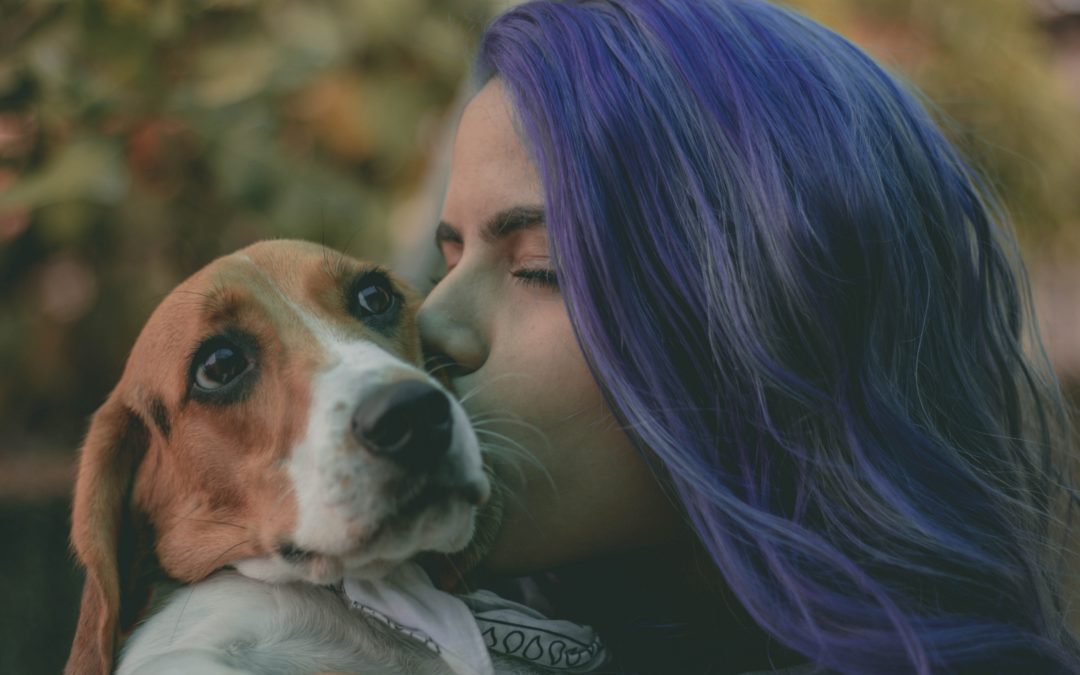They say our pets are like family. I say, they’re not “like” family; they are family, and when you lose one, it’s a like a part of your heart and soul gets ripped out and taken with them.
As the co-founder of PPITS, I’ve seen my fair share of pet loss. It is absolutely devastating on so many levels. As an NLP certified personal development coach, I have helped many friends, family members, and colleagues through the end of life stages of their pets.
I always get the “when will I know it’s time?” question when someone is dealing with a senior pet who’s health is on a serious or rapid decline. The only answer I can ever give is “you’ll know when.” Other than the physical signs of suffering, pets have an uncanny ability of letting us know when they’re ready to go. Sometimes, they’ll go on their own terms. Either way, it’s never easy.
“People often minimize the significance of losing a pet, but in reality, the loss can be experienced as more painful than the loss of a human friend or family member,” said Arolyn Burns, M.A. LMFT, LPCC. “Pets give us unconditional love. There’s no conflict over race, religion, or politics. They don’t judge us, and there’s no bitterness or resentment. The pain can be quite significant and last a very long time.”
Losing a pet can be especially difficult if you’re single and have no children. Your pets are your children. They are often your sole source of daily companionship.
And now, with the fear, uncertainty, and isolation due to COVID, our pets have become an even greater source of comfort and companionship. Losing one during this time can be even more devastating.
So how do you get past that level of grief?
1.Seek help. Don’t go it alone. Contact a grief counselor, therapist, or yours truly. In her book, On Death & Dying, Elisabeth Kübler-Ross identified five stages of grief: denial, anger, bargaining, depression, and acceptance. It’s important to have an experienced and grounded ear to help you cycle through these phases. “The grief can be crippling. If it is causing a significant impact on your life, please seek help from a licensed professional therapist,” said Burns.
2. Be ok with your grief. Everyone experiences grief differently. Some feel guilty about grieving a pet. Often times that’s due to societal judgements: “It was just a dog…” (or cat, bird, guinea pig, bearded dragon, what have you). No, “it” was so much more to you than anyone could ever imagine, especially if it was what we call your “heart pet”. My heart cat was named Vivian. When she passed, that was it. There will never be another cat like Vivian to me, and therefore I shall never have another cat. I am more than happy to rescue them, but to me, Viv was the cat’s meow of cats.
3. Know that grief has no timeline. We’ve had so many adopters tell us they lost their beloved pet and just couldn’t bring themselves to adopt another one for a certain amount of time. Some come to us within one week of their pet’s passing. For others, it took years. It doesn’t matter how long it takes, don’t rush through the process and force yourself to try to feel better. Often, those who live alone grieve for longer because their pet was such a focal point of their lives. The same is true for those who lose a therapy pet or service animal. The pet wasn’t ‘just a pet’. There was a deeper bond as he or she performed specific tasks, which enabled their owner to have a better quality of life.
4. Consider a ‘transition’ pet. People often come to us to adopt a younger pet because their current pet is getting old, and they want another to help with the transition when the older one eventually passes. Having the other pet there automatically fills the void that the family would have felt with the loss. It allows them to maintain their routine and gives them something to continue to focus on and care for. The concept of adopting a transition pet tends to be more common with people who are single. they don’t want to be left alone. Often times, the younger pet serves as a companion for the older one, which can give them a new lease on life and increases their lifespan.
5. Practice self care. Losing a pet can take an extreme emotional toll, which can zap your energy. Look after your emotional needs during this time. Try to avoid stressful situations and the negativity of social media. Meditate, spend personal time with friends and family, eat healthy, get out in nature, exercise regularly, and get plenty of sleep. These things are recommended under normal circumstances, but they are especially important when you’re going through the grief process.
Other recommendations:
- Create a legacy by planting a tree, flowers, or creating a memorial for your pet.
- Volunteer for an animal charity, or any charity whose mission you feel aligned with. Being in service is super uplifting and healing.
- Reach out to others who’ve lost pets. There are plenty of support groups on social media and on the Internet, which are specifically geared towards helping those who’ve lost a pet
- Consider a ceremony or ritual. There’s nothing wrong with holding a funeral or memorial service for your pet. It allows you to celebrate your pet’s life and gives you a sense of closure.
However you handle the painful loss of your pet, grief is a normal process and should be taken very seriously. “Losing a pet is a significant loss. It is going to going to hurt. Don’t ignore it or avoid it,” said Burns.
Being open to feelings of grief and taking time to work through your sorrow will help the healing process. Eventually, you will get to the point where you can only look back with fond memories of your beloved pet with a mended heart and soul.


Recent Comments